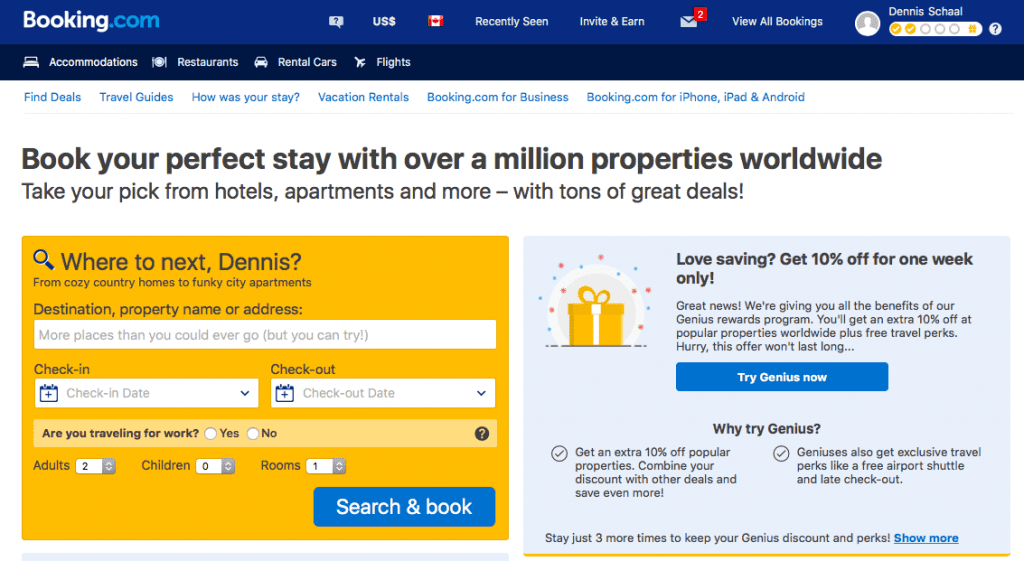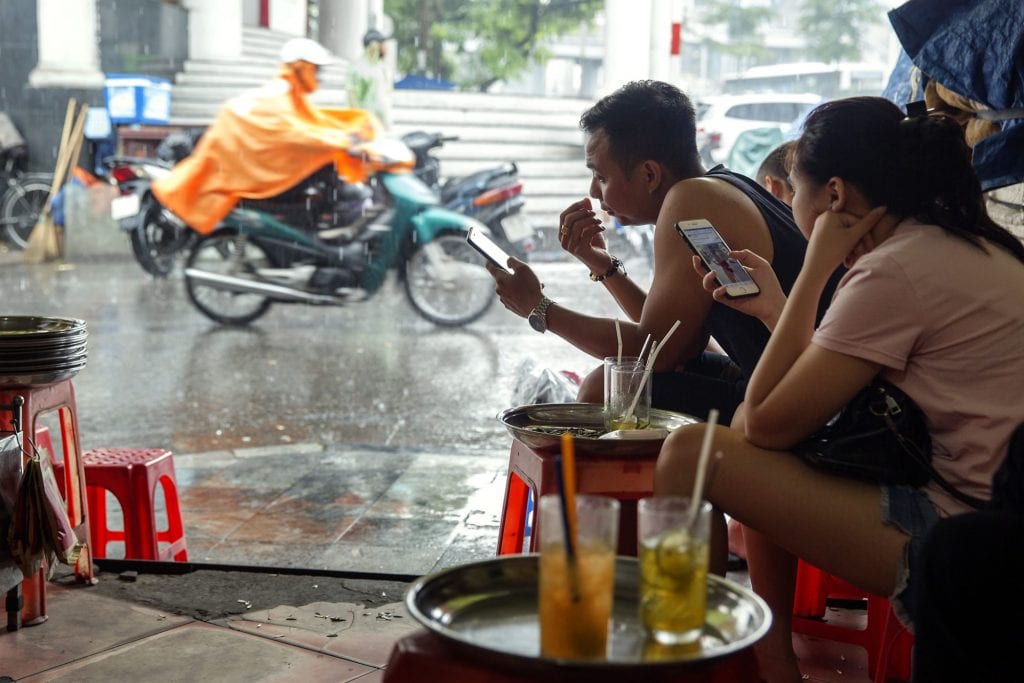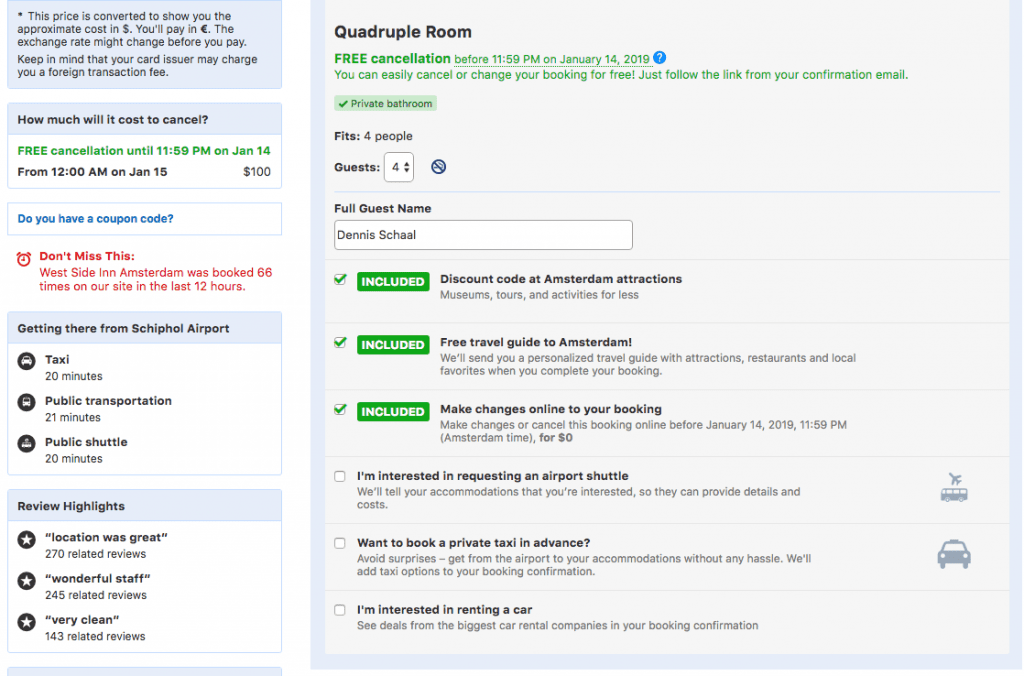Skift Take
Booking.com is taking its sweet time to implement a flights-to-attractions travel offering. Some would say the pace is Google-like in its slowness. But behind the scenes, data reigns supreme, and dictates whether a product is scrapped, implemented with a twist, or then reshaped anew. Refill the popcorn. This will take a while.
In the summer of 2017, Booking.com broke with its accommodations-only tradition, and suddenly restaurants, rental cars and flights tabs appeared atop its homepage.
It was seemingly crystal clear that after years of focusing on hotels and alternative accommodations, Booking.com would be branching out — Expedia-like — into becoming a full-service online travel agency.
Asked about the initiative nine months later, in April of this year, CEO Glenn Fogel confirmed the direction that Booking Holdings’ biggest and most important brand was taking.

Booking.com’s homepage on June 26, 2017 showed tabs for Accommodations, Restaurants, Rental Cars, and Flights. A different version of the homepage on November 21, 2018 displayed tabs for Accommodations, Flights, Flight+Hotel, Car Rentals and Airport Taxis.
“That’s what we are driving to, yes,” Fogel said. “What I would say, again, is what we are trying to create is a wholistic system that solves all issues of the trip.”
But, then he added a kicker, which seemed like a routine disclaimer at the time.
“I can’t give you a timetable, but I will say, we are on that road,” Fogel said.
Fast forward to the present — 17 months since that first hint of a more comprehensive approach went live — and from outward appearances Booking.com doesn’t appear to really have made much progress.
What you see on the Booking.com homepage at one moment might be gone the next; or it will appear differently on another browser, device, or in a different country.
“Unless you’re using Booking.com super-consistently, you’re probably not seeing actually all that is happening,” said Leslie Cafferty, a Booking Holdings spokeswoman.
Cafferty said, for example, that she was “floored” the other day when she received a post-booking email recommending a restaurant based on her food preferences. None of that is visible to the public.
Nor are all of those A/B tests on various user experiences or products that Booking.com’s engineers are constantly carrying out.
Booking Holdings CEO Glenn Fogel recoils at the term full-service, preferring to look at the company’s development efforts as creating an “end-to-end solution.” The thinking is that the product and user-experience will not be Expedia-like at all, or characterized by the traditional five or so tabs — hotel, flights, cars, tours and cruises — heading a homepage. The end game, if there ever will be an end game, is that customers will be delivered personalized products when they need them through a variety of channels, and not just through the traditional click on a tab and search.
“The thing is, I do continue talking about this end-to-end solution, and I believe that is the way we’re going, and we’re going to get there,” Fogel said. “And we’ve also been very clear that you don’t build something like this in a day, a week, a month, a year, two years. This is gonna be a long, long path.”
On Wednesday, Booking Holdings disclosed another enabler of that path: an updated privacy policy that it emailed to customers. The company noted that it will begin sharing customer information among its brands, including Booking.com, Priceline, Agoda, Kayak, Rentalcars.com and OpenTable to manage reservations, handle payments, provide customer support, to detect fraud, and make personalized offers, among other purposes.
Do Its Packages Have Permanency?
Asked whether a new flight+hotel tab, powered by Priceline, on the Booking.com homepage was a temporary experiment, Fogel said: “I’m tempted to say, don’t you know that everything in the world is temporary?”
When challenged that some things have more permanency than others, Fogel replied: “We let the data tell us what to do. We’ve always let the data tell us.”
Fogel is fairly satisfied with the vacation package product on Booking.com, which is powered by Priceline. He said the prior version of it was clunky “versus the slickness of the new one,” especially when it comes to the shopping cart.
There are a lot of other tests going on with the aim of driving toward that end-to-end solution that Fogel refers to.
Matching Accommodations and Vehicle Types
Ady Guthrie, global director of Booking.com’s Manchester, UK-based Rentalcars Connect, said his brand is busy matching each Booking.com accommodation listing with a particular form of ground transport, including shuttles, taxis or black cars based on factors such as the number of people in a group, whether they are heading toward a business meeting, at the airport or in a rural destination.
As I was booking a room this week at the West Side Inn in Amsterdam, Booking.com asked me if I was interested in booking an airport taxi, a private shuttle or renting a car. The company also informed me that I would be receiving discounts on attractions in Amsterdam, as well as a travel guide for the city.
Booking.com will eventually show “the right car, the right mode of transport, depending on the behaviors the customer shows,” said Guthrie, who was in Los Angeles along with Fogel, Cafferty and other colleagues.
One important caveat, Guthrie said, is to ensure that adding ground transport to the mix doesn’t negatively impact hotel bookings.
Guthrie said the company has to do “an inordinate amount of testing” to ensure that the accommodation-vehicle-customer matches make sense, and don’t have an adverse effect on converting hotel lookers to bookers.
The next phase for Booking.com will be to personalize tours and activities, as well as restaurant offerings for its customers, Guthrie added.
In fact, Fogel said Booking.com is now offering tours and activities choices in some 70 cities, but customers usually only get pitched the offerings in an email after they book a hotel or another type of stay.
He said “it won’t always be post-booking, we’ll get there.” In other words, these experiences offerings might become a standalone feature on the homepage, bookable before or during the trip.
“We’ll get there,” Fogel said. “In your hometown, you’ll want to do something. We’ll get there on that. First things first with things that are going to have the highest conversion. Everything is data-driven.”
A Payment Choices halo effect
When I told Fogel that Guthrie filled me in on this massive personalization effort, tying accommodations with ground transport, Fogel raised his arms in the air, clenched his fists, and said, “I love stuff like that.”
Fogel said that Rentalcars, which he folded into Booking.com this year, is a great business.
“But you and I both know that being able to provide somebody driving transportation after you’ve chosen your hotel is a great advantage,” Fogel said. “It goes back to this whole idea about payment structure, that when you have this one payment, it’s covering everything, making it easier.”
Booking Holdings is making a big push to offer numerous payment options, such as Alipay, WeChat Pay, GrabPay, Stripe, and many others. And this will have implications not only for travelers, but for hotels, vacation rental owners, and transport partners, too.
“I’m Chinese, I’m Indonesian, I don’t have an American Express or a Visa, I don’t have a MasterCard, how do I pay?” Fogel asked. “So you have to provide that to them.”
Fogel said this will also help the hotelier in China or France, for instance. “So it’s the other side,” he said. The hotelier might think “we’d like to get that customer from China. We don’t want them to go through the trouble of having to set everything up with all these 10 different ways to accept pay. So we’re providing a service for both the demand and the supply market. It’s very important.”
In fact, Fogel said there is a “halo effect” from offering multiple payment solutions. “It’s interesting, when you provide more payment methods, it’s bizarre, you actually end up with higher conversion, even with people who aren’t using that other way. It’s just the choice seems to have a halo effect to increase conversion.”
And Booking.com has high hopes that offering consumers a wider array of travel offerings, from flights to a car home from the airport, will likewise brighten its outlook.
But it’s all going to take a while.
The Daily Newsletter
Our daily coverage of the global travel industry. Written by editors and analysts from across Skift’s brands.
Have a confidential tip for Skift? Get in touch
Tags: alternative accommodations, booking holdings, booking.com, cars, ceo interviews, hotels, otas, restaurants, tours
Photo credit: Restaurant patrons pictured in Vietnam as an electric scooter passes by. Booking.com is trying to personalize its offerings, from dining choices to hotels and transportation. Bloomberg

